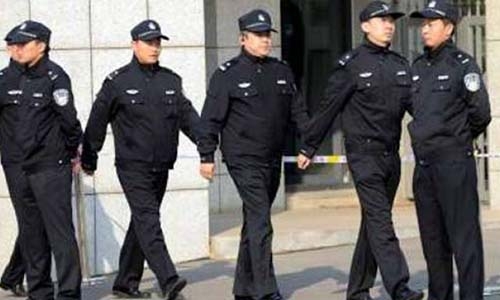China to execute two for killing British monk: report
China has sentenced two men to death for stabbing to death a British monk who founded Europe's first Tibetan monastery over a financial dispute, state media said.
Akong Tulku Rinpoche, co-founder of Scotland's Samye Ling monastery, was found dead with multiple stab wounds at his home in the southwestern city of Chengdu in 2013.
A court in the city sentenced two men, named in Chinese as Tudeng Gusang and Tsering Banjue, to death for the murders of Akong and two other men, while an accomplice was sentenced to three years in jail, the state-run China News Service reported late Sunday.
It cited authorities as saying that Gusang, who had worked at the Scottish monastery, and Banjue had stabbed Akong, his nephew and a driver to death in a dispute over a 2.7 million yuan ($410,000) payment.
The verdict, posted by the court on social media, said the murders were "brutal" and that the suspects would be "treated severely in accordance with the law".
Britain said in a statement that it communicated its opposition to the death penalty to Beijing.
Akong, who was in his early 70s, took British citizenship after fleeing Tibet in 1959, and founded the facility in rolling Scottish hills in 1967.
He had the title of Rinpoche, an honorific given to the most respected teachers in Tibetan Buddhism, and his monastery said at the time of his killing that he had been "assassinated".
The institution was a pilgrimage site for artists and musicians including Leonard Cohen as well as senior Tibetan monks including the Dalai Lama.
Despite fleeing China, Akong had maintained a relationship with authorities in Beijing, regularly returning to Tibetan regions.
Many Tibetans say that China represses their religious freedom and culture. Beijing says it has brought massive investment to the relatively undeveloped region.
Rights groups say China executes more people than the rest of the world combined, though the annual number sentenced to death has declined significantly over the past decade. Beijing regards the figure as a state secret and does not release it.
The British embassy in Beijing said it was aware of the outcome of the trial, adding: "The British government maintains its longstanding opposition to the death penalty, and has formally communicated this to the Chinese government."
Photo: tribune.com.pk
Related Posts

